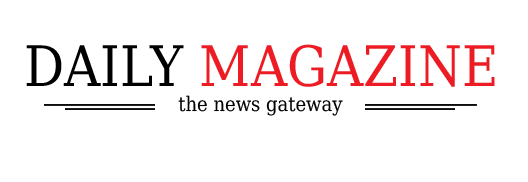The growing popularity of cross-platform application development has established Flutter as a primary development framework for businesses seeking performance and flexibility, along with rapid market access. Selecting Flutter developers to work on your app development project affects both the quality and development speed of your digital product, whether you need to create an MVP or scale a full-fledged digital product. Different developers hold varying levels of expertise. The following blog post evaluates essential traits alongside technical abilities and soft abilities that must be present when selecting a qualified Flutter developer for 2025 employment.
1. Proficiency in Dart Language
Google developed Dart as a client-optimized language that operates Flutter as its framework. Flutter developers require expert Dart language skills, which include mastery of asynchronous programming techniques and streams alongside generics and collections and object-oriented design principles. The understanding of Dart extends beyond syntax to enable developers to create codebases that remain maintainable and modular. During candidate evaluation, you should request their Dart experience and implementation methods for Flutter projects.
2. Experience in Building Cross-Platform Applications
The primary benefit of Flutter lies in its ability to create applications that run flawlessly on both Android and iOS platforms through a unified codebase. True native-like cross-platform application development needs developers to grasp both platform-specific standards and user interface standards, as well as device-specific operational characteristics.
The interviewer should ask questions about the following topics:
- Their method of dealing with platform-specific coding requirements
- How they make their applications perform well on both Android and iOS platforms
- The candidate must show examples of real-world cross-platform projects they have completed
Expert developers demonstrate their ability to deliver applications that respond well and maintain speed and visual coherence across multiple platforms.
3. UI/UX Design Capabilities
The UI design capabilities of Flutter remain flexible due to its extensive widget library. A superior Flutter developer maintains proficient coding skills while developing interfaces that are both user-friendly and visually pleasing. Look for developers who:
- Understand Material Design and Cupertino widgets
- The developer should demonstrate expertise in converting Figma or Adobe XD designs to Flutter widgets.
- The developer demonstrates proficiency in animations and transitions, as well as responsiveness.
The developer’s solid understanding of UI/UX design methods results in applications that combine functionality with user engagement capabilities and user retention features.
4. Experience with APIs and Backend Integration
Mobile applications typically need to access dynamic data, which demands smooth backend connectivity. The ideal Flutter developer needs to demonstrate proficiency in RESTful API integration and JSON handling, as well as authentication flow management. The ability to work with Firebase together with Node.js, Laravel, and GraphQL constitutes an additional advantage.
When hiring, ask about:
- What API integration issues have they encountered during their work?
- What tools do they use to manage data flow and state?
- The candidate should share their experience with push notifications and real-time updates.
Data-driven mobile applications require these integrations to achieve their interactive nature.
5. Familiarity with Popular State Management Solutions
The fundamental foundation of effective Flutter development depends heavily on state management practices. Developers need to demonstrate mastery of at least one state management technique among Provider, Riverpod, Bloc, MobX, Redux, or another popular method.
- Provider
- Riverpod
- Bloc
- MobX
- Redux
The management of the state plays a vital role in applications that have extensive user interfaces with changing elements. The way your candidate handles the state demonstrates their capability to handle complex systems and maintain clean architectural structures.
6. Portfolio and Problem-Solving Skills
A developer’s portfolio presents the most effective evidence of their expertise beyond theoretical concepts. When assessing the developer’s portfolio, you should look at the following elements:
- Types of apps developed (eCommerce, social, fintech, etc.)
- Reviews or feedback from clients or users
- GitHub repositories or code samples
- Use of third-party packages and plugins
During interviews, you should provide actual development cases for candidates to solve problems. The candidate demonstrates effective problem decomposition skills. The candidate displays their thought process in a clear manner. The candidate demonstrates logical skills for debugging issues.
Hiring Flutter app developers requires this evaluation phase to guarantee that your investment goes to talent who meet your technical requirements and business objectives.
7. Soft Skills and Communication
Technical skills are fundamental, but soft skills distinguish exceptional developers from ordinary ones. Your selection of a developer should prioritize someone who has strong skills in collaborative work since app development teams function through joint efforts.
- Clear and immediate communication is a necessity.
- Is receptive to feedback
- Works well in agile teams
- Is proactive about problem-solving
Remote collaboration with mobile app developers requires strong skills in asynchronous communication and adaptability alongside high accountability standards for effective work.
8. Continuous Learning and Community Involvement
The Flutter framework remains under constant evolution through its regular update releases. A developer who remains committed maintains knowledge of modern framework developments and monitors Flutter team announcements, and supports open-source projects. Check if the developer:
- Attends meetups or tech conferences
- Follows Flutter changelogs and GitHub issues
- Writes blogs or shares knowledge
Your project will avoid being left behind by outdated development practices because the developer possesses a growth-oriented mindset.
9. Understanding of Testing and Debugging Tools
Any development process must have quality assurance as an essential element. A skilled Flutter developer requires expertise in testing methods, which include unit testing alongside widget testing, and integration testing. The developer should demonstrate knowledge of Flutter_test together with Mockito and integration_test tools. The developer needs to master Flutter DevTools for both debugging and performance analysis.
The combination of testing with debugging tools enables developers to detect issues promptly, which in turn speeds up the development process.
Final Thoughts
The process of selecting a suitable Flutter developer extends beyond reviewing resumes along evaluating portfolios. You should evaluate their technical expertise, together with their creative abilities and teamwork potential, and their ability to work with others. Flutter’s popularity continues to grow in 2025 so does the competition in the market. The wise investment of companies requires hiring developers who match their current requirements and future strategic goals.
Through its platform, Remote Resource enables businesses to connect with vetted Flutter developers who excel at building and scaling high-quality applications.
The right skills evaluation of Flutter developers during project development leads to successful outcomes because it saves both time and money while producing market-differentiating products.

